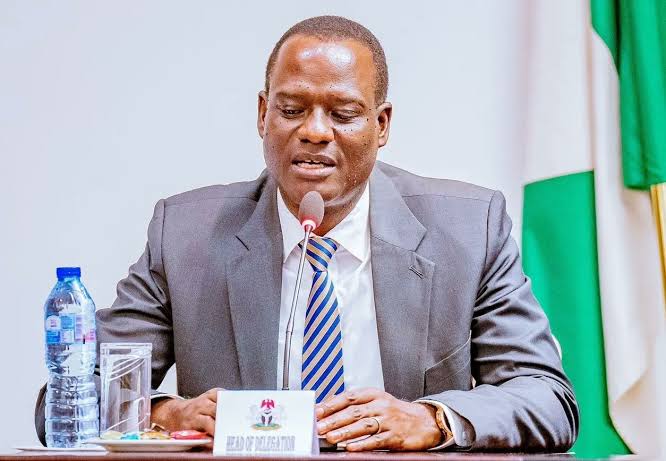The Nigerian government has announced plans to introduce a new set of tax measures despite the economic hardship many citizens are already experiencing. These measures are part of the Economic Stabilisation Bills recently approved by the Federal Executive Council, designed to help stabilize the country’s finances and promote long-term growth. However, many Nigerians worry about how this will affect their daily lives, given the current rise in the cost of living.
Taiwo Oyedele, Chairman of the Presidential Committee on Fiscal Policy and Tax Reforms, explained that the new tax initiative, called “Tax Identification Consolidation and Collaboration (TICC),” is aimed at expanding the country’s tax base. The goal is to bring more Nigerians and businesses into the tax system, which will help increase government revenue and reduce the country’s reliance on borrowing.
According to Oyedele, TICC is one of 15 proposed tax, fiscal, and legal reforms. These reforms are designed to stabilize Nigeria’s economy and create a foundation for sustainable and inclusive growth. The proposed bills have already been submitted to the National Assembly for approval.
The TICC initiative aims to broaden the tax net by identifying and registering more individuals and businesses for tax purposes. This means that more Nigerians who may not have been paying taxes will now be required to do so. The government is also focusing on making the tax system fairer for businesses by ensuring that more companies, especially those that have evaded taxes in the past, are brought into compliance.
For citizens, the impact could be mixed. While the government aims to boost revenue and improve public services with these taxes, many fear that the introduction of new taxes could worsen the financial strain, especially with inflation reaching 32.15% in August 2024. With prices of goods and services already on the rise, the timing of these reforms has raised concerns among the public.
Earlier this year, there was an uproar over reports that the government planned to increase the Value-Added Tax (VAT) from 7.5% to 10%. While the Federal Government denied these claims, the discussion has not been entirely dismissed. Taiwo Oyedele had previously hinted in May 2024 that adjusting the VAT might be necessary to meet revenue targets. However, in the face of public backlash, the government decided against implementing the increase for now.
Atiku Abubakar, the Presidential candidate for the Peoples Democratic Party (PDP), was one of the most vocal critics of the rumored VAT hike. He argued that raising taxes during a period of economic hardship would only “consume the very essence of the Nigerian people,” putting more pressure on struggling families and businesses. Despite these concerns, the government continues to push forward with the broader tax reforms.
For businesses, especially small and medium-sized enterprises (SMEs), the introduction of more taxes could be challenging. Many companies are still recovering from the financial impact of the COVID-19 pandemic and the subsequent economic downturn. The TICC initiative, while aimed at ensuring a fair playing field, could increase operational costs for businesses that were not previously paying their full share of taxes.
On the other hand, supporters of the reforms argue that expanding the tax net could help reduce the burden on compliant businesses. By ensuring that all businesses pay their fair share, the government hopes to create a more equitable tax system, which could benefit the economy in the long run.
The Nigerian government faces a difficult balancing act: raising revenue to stabilize the economy while avoiding further pressure on citizens already facing high inflation and a rising cost of living. The government’s decision to deny the VAT increase for now may have been a response to the widespread backlash, but the broader tax reforms under TICC indicate that more changes are coming.
It remains to be seen how the National Assembly will respond to the proposed Economic Stabilisation Bills. If passed, these reforms could reshape Nigeria’s tax landscape for years to come.
While the Nigerian government is determined to push forward with its tax reforms under the TICC initiative, the timing has sparked debate. With inflation rates high and many Nigerians struggling to make ends meet, the introduction of more taxes is likely to face resistance. However, the government argues that these reforms are necessary for the country’s long-term stability and growth.
As the situation unfolds, citizens and businesses alike will be watching closely to see how these policies will impact their finances and the broader economy. For now, the future of Nigeria’s tax system remains in the hands of the National Assembly, but it’s clear that change is on the horizon.







